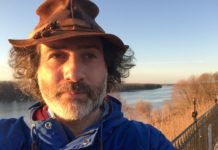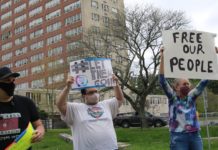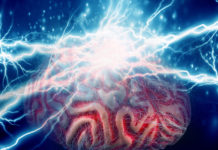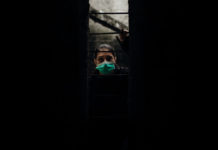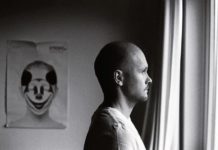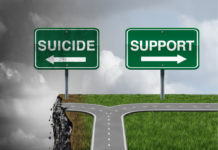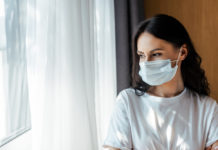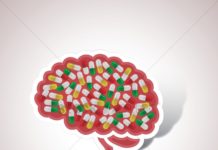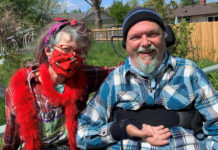“We Are All Mad!” A Call for the Development of an International Network Among...
I can imagine all the “MAD” affiliates working together regarding specific initiatives or projects.
New Analysis: Antidepressants Still Linked to Suicide
“This is remarkable for drugs that are used to treat depressive symptoms,” write the researchers.
Jinxed: The Persecution of Evan Durst Kreeger
I am very concerned that Evan is about to be devoured by psychiatry's maw. Things could be different if Evan were able to hire an attorney or attorneys to deal with all of these different legal actions coming at him and otherwise protect his interests such as sue the trustees for their unconscionable actions, but as I have indicated, his trustees have cut off his money so he can't hire such an attorney or attorneys.
Chasing that Elusive Insight
The psychiatric concept of insight rests on the assumption that the psychiatrist, designated sane, knows what’s best. But if we question that assumption and consider that the medical model of mental illness may be incorrect, then the question of which party actually possesses insight becomes less clear.
Three Recent Genetics Books and Twin Studies’ Indefensible “Equal Environment Assumption”
Although Mitchell and Murray cited twin studies as the main source of evidence in support of their claims, these studies are based on a long-controversial assumption which they were unable to defend in their books, or on Twitter.
12 Essential Facts About Psychiatry
With these twelve facts, you are equipped to defend against the misinformation propagated by academic psychiatry, Big Pharma, and the laypeople they target. You are encouraged to use this knowledge to (firmly but respectfully) challenge statements you hear in passing or from loved-ones such as “He is mentally ill,” “I have a chemical imbalance and these drugs help correct it,” or any other commonly accepted falsehoods that the above facts expose.
Bringing Human Rights to Mental Health Care: An Interview with UN Envoy Dainius Pūras
MIA's Ana Florence interviews United Nations Special Rapporteur Dainius Pūras about his own journey as a psychiatrist and the future of rights-based approaches to mental health.
Should You Ever Ask Someone “Are You Suicidal?”
For every person “Are you suicidal?” may assist, there are many more of us who are scared into silence when those words are uttered. Why? Well, “Are you suicidal?” is, in fact, the king of the suicide risk assessment questionnaire. “Are you suicidal?” has become the red, neon, flashing sign that screams “Stop! Don’t talk to me!” Perhaps this might just explain why suicide risk assessments are well known not to work.
“Free Our People!” Ex-Psychiatric Patients Demand COVID-19 Accountability in State-Run Facilities
Residents and workers are dying from COVID-19 exposure in Massachusetts state hospitals. One group of ex-psychiatric patients and allies has had enough.
Electric Shock Update: Allegations of Regulatory Misconduct Filed with the FDA
The New York State Office of Mental Health (OMH) is publishing false and misleading advertisements about electric shock services under the guise of educational materials without even acknowledging the Food and Drug Administration (FDA) December, 2018 Rule.
Should We Diagnose Donald Trump?
I have been involved in hundreds of commitment hearings in which psychiatric diagnoses were crucial. In that context, I have never witnessed the presence of all three factors: (1) the transparent (honest) use of diagnostic labels (which includes the acknowledgment of the inherent biases built into the labels as well as their limited validity), (2) allowing full voice to and full acknowledgment of the labeled person’s view of reality, and (3) using the labels in a manner that produced a useful understanding, which in standard mental health practice would require that the understanding be significantly more beneficial to the labeled person rather than the labeler.
Meditation Triggered My Psychosis; Reiki Healed It
James and I started talking about how we each fell on the path as seekers. He told me that he was a reiki master. A seed was planted within me. Even though my previous meditation practice did not work out, I still had spiritual longings and wanted to try again.
Does Pharma Need the Entrepreneur?
Capitalists don’t discover new medicine; they invest in it. The incentive to do so, as everyone will admit, is to return a profit. Most would also agree that this profit shouldn’t be "too large," but enough to encourage adequate investment into new treatments. However, the idea that this is a well-functioning system, and indeed the best way of producing medicine, is a myth.
Beyond the Buzzwords: What Does Trauma-Informed Care Truly Mean?
Rethinking Psychiatry's March meeting was a rich discussion of what "trauma-informed care" means. It is an important idea, but can be an empty buzzword. Our goal was to have a deeper, more meaningful conversation on what this term really means. A diverse group from the local community attended and we had a really interesting, thoughtful discussion.
What COVID-19 Has to Teach Us About Psychiatric Oppression
The answer to DJ Jaffe’s question as to whether or not forced incarceration in psychiatric facilities leads to fear of psychiatric facilities (or of reaching out for help in general) is an obvious one. Yet, it is important that we find ways to use this opportunity to draw the connections in bold, impossible-to-miss lines, and turn this crisis into a learning opportunity that might actually help move psychiatric oppression out of the shadows of the unknown and into the light.
DSM Led Us Far Astray. Life Story Is the Path to Truth.
When the DSM-5 came out six years after the study was published, it ignored the evidence that psychological injuries caused 88% of “depression” in adulthood. It wasn't just this study that was sidelined. All the research that linked childhood trauma to later episodes of “depression” was ignored as well.
No Good Evidence That Antidepressants Prevent Relapse
Trials of antidepressants for relapse prevention are confounded by withdrawal effects caused by the drugs.
When Telling A Psychiatrist You Are Not Mentally Ill Is Grounds for Commitment
Both these cases are examples of people whose only symptoms were stating they were not mentally ill and did not need psychiatric medication. They both certainly had problems at some time in their lives, but the one size fits all system of commitment and mandatory medication did not fit their needs at all. Does having mental symptoms in the past mean that one should have a lifetime of mental health commitment and forced medications?
When Psychology Speaks for You, Without You: Sunil Bhatia on Decolonizing Psychology
MIA’s Ayurdhi Dhar interviews Sunil Bhatia about decolonizing psychology, confronting the field’s racist past, colonial foundations, and neoliberal present.
Suicide Prevention and Service Failure in the U.K.
It's really hard to talk about suicide. We are constantly constrained by the notion that our mental health is our individual responsibility to manage, told to “live our best lives” by a never-ending campaign of exploitative wellness fads. A more collective conversation is needed.
Loneliness Is Deadlier Than COVID
What we are being required to do and what many are rightly electing to do for their own health—that is, social distance, isolate and quarantine—are exacerbating the felt sense of loneliness that was an epidemic long before the present crisis. The coronavirus pandemic has made it obvious that the precious-sounding axiom “we need each other” is quite literal.
Neuropsychological Tests Reveal Consequences of Polypharmacy
Neuropsychological assessments reveal the cognitive, occupational, and social impact of polypharmacy in psychiatry.
Why Compassionate Activism?
Compassionate Activism encourages people to “take a second look,” as Deron and Linda advised me to do. It is not the easiest thing to do, as we have learned the language and lived the life that profits some while others suffer. Knowing what has happened before can help light a pathway to where we want to be, so sharing the history of mental health is a big part of CA.
Re-establishing My Credentials: Psychiatric Survivor Activists Are Needed Now!
For more than four decades, I have worked as a psychiatric-survivor human rights activist. Then, at the end of 2012, I broke my neck. As readers of my blog posts, such as those on Mad in America, know, I have devoted the past few years to rehab and activism. But it has been a while since my last personal blog. Let me sum up my Mad Pride journey today, because a lot is changing.
What If This Pandemic Is the Best Thing to Happen to Children with Challenges?
Families may be worried that the stress of lockdown may aggravate their child’s struggles. Yet, we hear some parents say the situation has changed their child for the better. Why might that be? In this interview, Dr. Nicole Beurkens talks about the impact of “quarantine life” on children with different types of behavioral, emotional, and neurodevelopmental challenges.



